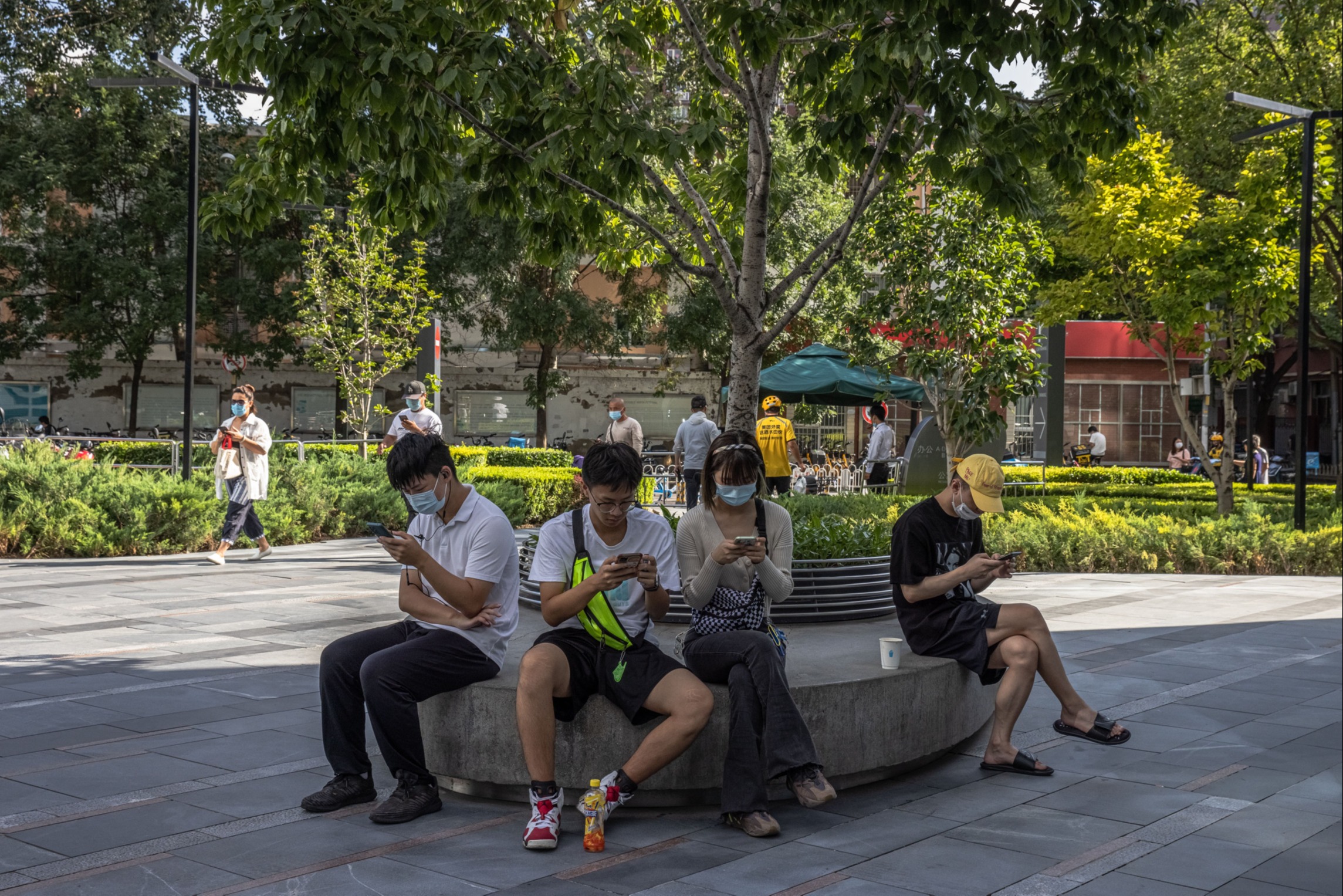According to official data, the unemployment rate in China among 16 to 24 year olds in metropolitan areas increased to 21.3% last month.It comes as the world’s second largest economy expanded by only 0.8% in the three months ending in June.
Based on analysts, the slow pace of development has boosted hopes that the government will shortly announce additional economic stimulus measures. China’s National Bureau of Statistics, the figures “shows a momentum of recovery.”
According to official numbers released on Monday, the Chinese economy grew by 6.3% year on year in the second quarter. It outpaced growth in the first quarter but fell short of analysts’ predictions.
“The disappointment is particularly evident in retail sales and housing investment,” said Qian Wang, Asia Pacific head economist at investment firm Vanguard, to the BBC.
“This, along with previous trade, inflation, and credit reports, reaffirmed our view that the underlying growth momentum remains very weak,” she continued.
Global demand for Chinese commodities has considerably decreased. There are also concerns about the property market and the increasing local government debt.
Economists are keeping a tight eye on youth employment as a record 11.58 million university graduates are anticipated to enter the Chinese labour market this year.
For several months, the urban youth unemployment rate has been rising. This is due to a mismatch between what graduates were taught to accomplish and the occupations that are currently accessible.
Youth Unemployment Climbing
Authorities have admitted that youth unemployment will most likely climb further in the next months, peaking around August.
According to Dan Wang, chief economist at Hang Seng Bank China, unemployed young people account for only 1.4% of the potential workforce in China’s urban areas.
She did, however, tell the BBC that the issue of teenage unemployment “demands more direct policy responses, because this group of the population is quite vocal online.”
“Their expression of dissatisfaction with the current situation may precipitate a broader loss of confidence in the economy,” she continued.
In 2018, China began providing data on youth unemployment. It does not, however, currently publish data on the job status of young people in rural areas.
Chinese Premier Li Qiang said in March that the country needed to redouble its efforts to attain its 5% economic growth objective this year.
He stated that meeting the aim would be “not easy,” despite the fact that the economy was “stabilising and picking up again.”
To promote more spending, China’s central bank slashed interest rates for the first time in nearly a year last month. However, experts believe the government still has additional tools at its disposal to stimulate the economy if the situation does not improve.
One in Five Unemployed in China
Young Chinese people who were always assured that their hard work studying and pursuing degrees would pay off are now feeling disappointed and stuck. In China, more than one in every five people between the ages of 16 and 24 are unemployed, and the young unemployment rate is at an all-time high.
Official estimates released on Monday show the figure has risen to 21.3%, the highest since officials began providing data in 2018. The figure does not take into account the rural labour market.
Many of the so-called “full-time children” claim they only intend to stay at home temporarily, seeing it as a time to relax, think, and look for better professions. However, this is easier said than done.
Julie has sent over 40 job applications to recruiters in the last two weeks, but she has received only two interview requests. “It was difficult to find work before I quit.” “It got even harder after I quit,” she adds.
Burnout is leading working adults to become “full-time children,” which is not surprising considering China’s notoriously terrible work-life balance – the country’s work culture is commonly referred to as the “996,” where people think it normal to work 9am to 9pm, six days a week.
Chen Dudu, another “full-time daughter,” resigned her real estate profession early this year because she felt overworked and undervalued. The 27-year-old stated that she “barely had anything left” after paying rent.
Ms Chen said she “lived the life of a retiree” when she returned to her parents’ home in southern China, but anxiety has crept up on her. She claims she kept hearing two voices in her head: “One is saying, it’s rare to have this leisure, so just enjoy it.” The other is pressing me to consider what I should do next.”
“If that went on for a while,” Ms Chen, who has now started her own firm, said. Jack Zheng, who just departed Chinese tech firm Tencent, said he had to answer to over 7,000 job-related text messages outside of work hours every day – what he terms “invisible overtime work” because it was expected but not reimbursed. He finally quit after the stress of his job caused him to develop folliculitis, a skin ailment characterised by irritated hair follicles.
Chinese Students Delaying Exams
Mr Zheng has since obtained a better employment, but he claims that others in his community are not as fortunate. Many confront the so-called “curse of 35,” a commonly held idea in China that businesses prefer young people who are “less expensive” to hire workers beyond the age of 35.
This double-edged sword of age discrimination and limited career options is a dilemma for folks in their mid-30s who have a mortgage or are considering starting a family. University students are no less depressed, to the point where some have resorted to failing their exams in order to delay graduation.
In recent weeks, Chinese social media has been swamped with unconventional graduation photos that speak to the dissatisfaction of new graduates. Some depict young people “lying flat” in graduation robes, their faces obscured by mortarboards; others have them clutching their diplomas above dustbins, preparing to toss them.
The employment market has deteriorated
In China, university was once considered an elite pursuit. However, between 2012 and 2022, enrollment rates increased from 30% to 59.6%, as an increasing number of young people saw college degrees as a ticket to greater chances in a competitive labour market.
However, as the employment market has deteriorated, aspirations have given way to disappointment. According to experts, youth unemployment is set to grow as a record 11.6 million new graduates enter the labour force.
“The situation is dire. People are fatigued, and many are attempting to withdraw. “There’s a lot of hopelessness,” said Miriam Wickertsheim, director of Shanghai-based recruitment business Direct HR.
According to Bruce Pang, chief economist for Greater China at Jones Lang LaSalle, one of the main reasons for China’s high unemployment is the country’s slower-than-expected economic recovery from Covid.I would have become a parasite after a long period.”
Graduation photographs on Chinese social media have been mocking graduates’ lack of alternatives.
Because of the ongoing Covid lockout, some firms are also less eager to accept “blank paper” graduates with less job experience than their predecessors, according to Mr Pang.
Regulations and Crackdowns
Recent crackdowns in China on industries popular with young Chinese professionals have also suffocated the job market. Regulations aimed at big technology businesses, limits on the tutoring industry, and a ban on foreign investment in private education have all resulted in employment losses.
While the Chinese government is well aware of these issues, it has attempted to minimise them.
Chinese President Xi Jinping was mentioned on the front page of the People’s Daily newspaper in May, pushing young people to “eat bitterness,” a Mandarin term that means to endure suffering.
Meanwhile, the state-run media has taken it upon itself to redefine unemployment. The term “slow employment” was used in an editorial last week in the state-run Economic Daily; the paper stated that while some young Chinese are certainly unemployed, others have “actively opted for slow employment.”
The origin of the word is unknown, but according to a 2018 story in China Youth Daily, an increasing number of university graduates were taking their time finding jobs, preferring to travel or take up brief teaching stints instead – this, the Chinese were told, was “slow employment.”
This time, the term covers those who have not found work and prefer to further their education, gain new skills, or take a gap year. No matter how difficult the job market is, the paper recommended individuals to “take action and work hard” – and as long as they do so, they won’t be out of work.
Given the current state of the labour market, the term and advise have been met with skepticism – some have marveled at their government’s “refusal to acknowledge the unemployment situation,” while others have responded with cynicism.
“Chinese writing is so profound,” one user said on Weibo, China’s Twitter-like service. “Despite the fact that we are clearly unemployed, [officials] invented the term, slow employment.'” How long would it take? Several months or several years?”
Another commenter on Xiaohongshu, China’s counterpart of Instagram, stated that the term “imposes responsibility on young people all of a sudden.”
“According to this explanation, the employment rate in the United States during the Great Depression in the late 1920s should have been 100%, because most people were in slow employment.” What a creative solution to a worldwide issue!”
“Unemployment is simply unemployment.” “We should call it what it is,” said Nie Riming of the Shanghai Institute of Finance and Law.
“While some young people may want to take a sabbatical before starting their next job, I believe the vast majority of those unemployed today are desperate for work but unable to find it.”








